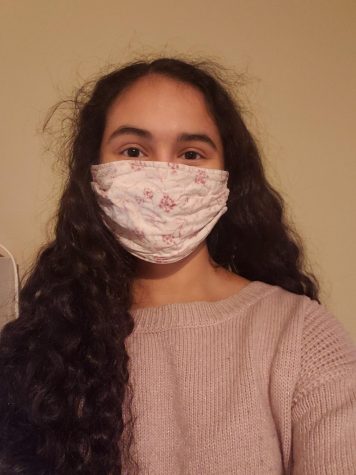COVID-19: Why you should care
November 18, 2020
Teenagers, since the beginning of time, have felt invincible. It has always been common for teens to have an “it’ll never happen to me” mindset, something that is simply a part of growing up. However, this doesn’t mean we actually are invincible, especially when it comes to the pandemic. Many people, especially those who are young and healthy, cite the high survival rate as a reason to ignore social distancing and mask guidelines. We need to social distance and wear masks to protect not only ourselves, but others around us. While it is true that younger people are more likely to survive COVID-19, it is incredibly selfish to act as if it does not exist.
While young people will likely survive COVID-19, there are concerning long term effects that we must be cautious of. Researchers have begun to discover neurological problems which have resulted due to COVID-19 that could severely impact people after they recover, and it is entirely possible that there are even worse long term effects that haven’t been discovered yet. According to The Lancet Neurology, COVID-19 has now been listed as a risk factor for stroke, and young people are seven times as likely to suffer a stroke due to COVID-19 as compared to the flu.
Many people with COVID also report losing their sense of taste and smell, some going on months without recovering these senses. Studies done by the Mayo Clinic have even found that COVID-19 patients are 27 times more likely to lose their sense of smell. Though this may seem like just a temporary loss, doctors don’t know if the virus causes any long term sensory loss. This could mean no longer smelling and tasting your favorite foods, impacting your quality of life. Taking action now to protect yourself and others around you is worth it.
Researchers from King’s College London have also made new discoveries concerning “long covid” by using data from the app COVID Symptom Study. “Long covid” is classified as the condition where recovered patients still suffer from symptoms such as chronic fatigue, breathlessness, or migraines, among other symptoms that affect different parts of the body such as the heart or brain. 10% of COVID patients who were 18-49 years old were found to suffer from “long covid,” and researchers warn that even those with mild cases may suffer from this.
Young people are also far more likely to be super spreaders, and we must act responsibly to protect the elderly and immunocompromised. According to a study from the journal Science, a research team from the US and India found that children and young adults are the most likely to be superspreaders. Additionally, a study from Massachusetts General Hospital and Mass General Hospital for Children found concerningly high viral loads of coronavirus in children. Lael Yonker, the lead author of this study, compared infected adult ICU patients to infected children, stating that “the viral loads of these hospitalized patients are significantly lower than a ‘healthy child’ who is walking around with a high SARS-CoV-2 viral load.”
You may believe that going out to that party can’t possibly hurt you because you probably won’t die, but you risk endangering your own health and quality of life, and even worse-spreading it to someone else who won’t survive. Truth is, if we had been the most vulnerable and it was up to our grandparents to social distance and wear masks to protect us, they would do it in a heartbeat. We need to do the same for them.




